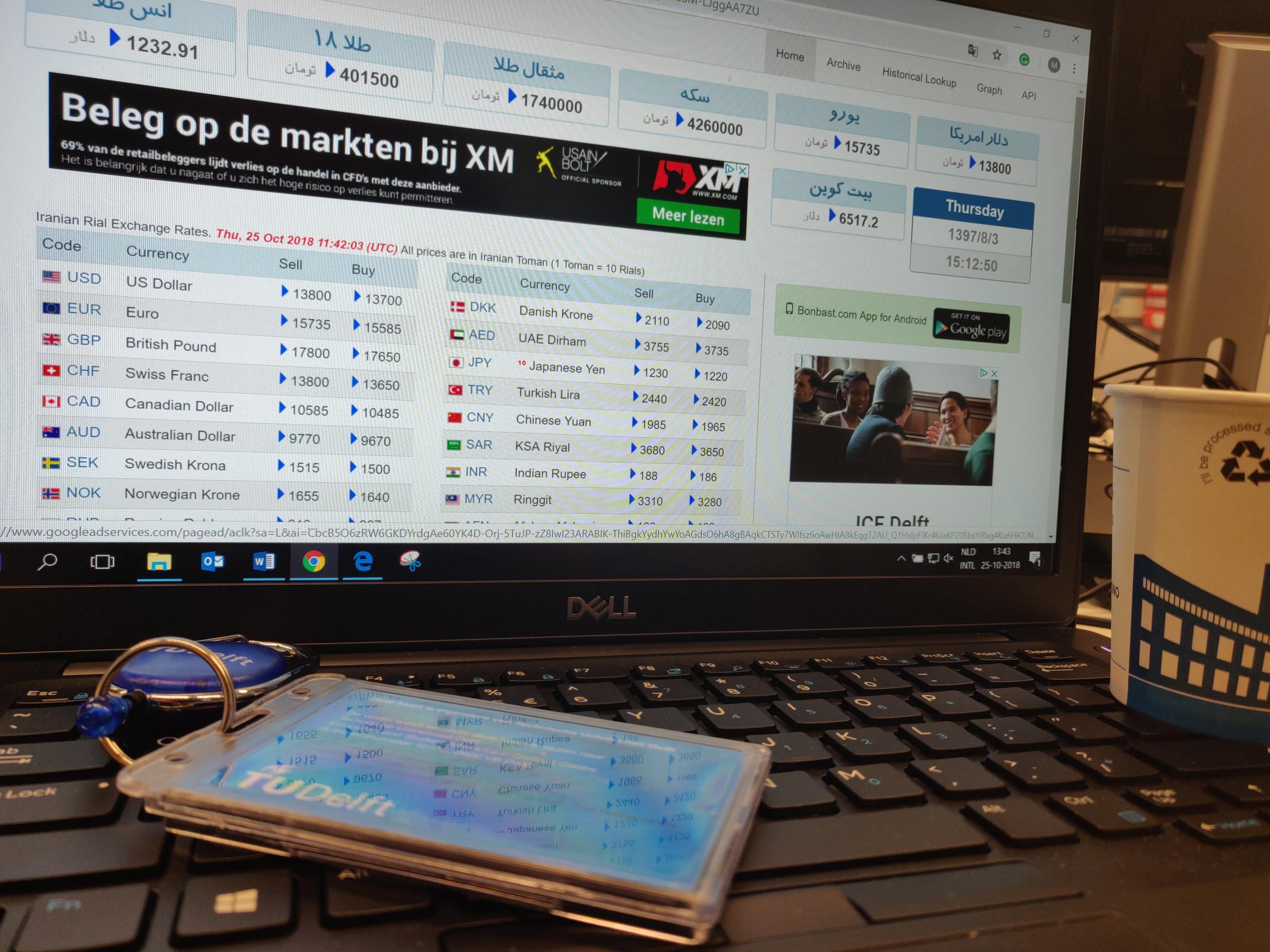Since the fall of the rial, Iranian students at TU Delft are in financial trouble. The situation is so drastic that some students may even have to stop studying.
Iranian students at TU Delft are in financial trouble. (Photo: Marjolein van der Veldt)
The Iranian economy completely collapsed in May. By backing out of the nuclear agreement between the United States and Iran, President Donald Trump put an end to the revocation of American sanctions against Iran. The new sanctions that he then imposed had an immediate impact on the exchange of the Iranian currency, the rial. Its value dropped to an all time low against the US dollar and euro.
At that point the fluctuation value of the rial was not yet reason to panic for aerospace engineering student Shadab (last name known by Delta). “The exchange rate has been a problem ever since the Islamic Revolution in 1979.” Her prospects changed in June when currency exchange offices closed their doors and all means of money transfer abroad was blocked. “From that point, we Iranian students could only get money from family who happened to be in the Netherlands.”
‘Will I have to stop studying and go back to Iran?’
For now, Shadab can continue studying at TU Delft with the financial support of her parents. But she does not know if she will be able to continue for long given the crisis in her country. “My parents are now paying four times the amount of money they did last year. And then we always have to hope that the money arrives.” Instead of concentrating on her studies, she is now worrying. “I am stressed and thinking about the situation all the time. What if my parents can’t pay anymore? Will I have to stop studying and go back to Iran?”
Looking for solutions
To make ends meet, a group of 13 students have been looking for solutions since the summer. A part-time job, a grant or a loan. But these sort of activities are limited for students from outside the European Union. Shadab also notices the negative impact of a part-time job on her studies. “I now teach for two hours a week. This is absolutely the most I can do without jeopardising my studies.”
In a last attempt to deal with the dire situation, the students contacted the student counsellors and the deans of four faculties: Aerospace Engineering, Architecture and the Built Environment, Civil Engineering and Geosciences and Industrial Design Engineering. They also sought the advice of the central student advisor. None of them had any solutions. “One advisor even asked us to ask other students not to come as they can’t do anything anyway.”
On 29 August, the students sent a letter to the Executive Board. “We asked them for solutions to be able to continue our studies at TU Delft,” says civil engineering student Amir (last name known by Delta). The Iranian students received a response to their letter on 24 October. Rob Mudde, vice-rector magnificus, apologised for the Executive Board’s late response. Through spokesperson Karen Collet, he expressed his understanding that the situation is very stressful for the students. Nevertheless, TU Delft is unable to fund financial risks such as the inflation crisis in Iran with public monies.
Mudde advised the students to again contact the study advisors who turned them away. The advisors should examine each case individually. He also suggested finding part-time jobs as student assistants. These students can then at least work in their fields.
Feeling abandoned
“But several European universities do support students in this situation,” asserts Amir. They reduce the tuition fees for example, which the students in Delft did not even ask for. “All we want is to be able to spread the payments over more than 12 terms.” Amir is also worried about the fact that previous contact with both the study coordinator and the study advisor led nowhere. “I had hoped that TU Delft could help us now that our government has dropped us.”
At present, there is no light at the end of the tunnel for the Iranian students at TU Delft. “We are looking desperately for ways to continue. If we can’t find any, we will have to drop our studies and return to Iran,” says Shadab. “I hope that I will be able to pay my tuition fees this month. I need to go to the dentist, but if I do so, I won’t have enough money left.”
Join the discussion on Facebook
Do you have a question or comment about this article?
m.vanderveldt@tudelft.nl


Comments are closed.